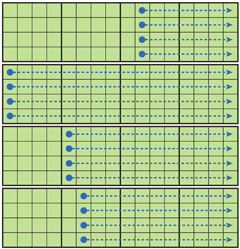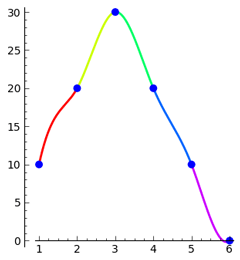Study groups: reading groups, special intereset groups, etc.
- Bring together enthusiasts interested in a particular subject.
- Open to staff, students, visitors, alumni, and external guests.
- Involve regular meetings or workshops and produce some record of their activity.
- Unlike research groups, a study group may not be at a frontier of research, and does not necessarily have to produce research publications in the field being studied (though may produce lecture notes etc.)
- Unlike seminar series, a study group focuses on one field from the basics up, thoroughly, regularly, and for an extended period of time, while engaging every participant.
- Unlike formal courses, it is meant to be very free and informal, having a minimal structure.
 |
Differential geometry reading groupThe aim is to improve the geometric intutition and to learn the language of diff. forms, metrics, exteriour derivative, Lie derivative, covariant derivative, etc. and to generalize vector calculus to calculus on manifolds. Application areas to be considered include geometric mechanics, geometry of phase space of dynamical systems, fluid mechanics on curved surfaces, general relativity and other applications in physics, diff. geometry of surfaces, discrete differential geometry. |
 |
GPU computing groupThe group aims at bringing together researchers, developers, and students interested in massivley parallel, stream processing, thereby maintaining a local ecosystem for knowledge exchange on parallelizability and algorithms for mathematical problems, which languages and libraries to use, setting up the hardware, etc. Activities include monthly meetups and weekly GPU programming online course. |
 |
Approximation theory study groupThe group consists of 6 people from different schools/departments within the College of Engineering. The goal is to learn the basic theory while implementing some practical approaches to the approximation of scattered data in 1, 2, 3, and n dimensions. Currently the main book is Holger Wendland's "Scattered Data Approximation". We may refer to other books on "approximation theory", "numerical methods", "functional analysis", "scattered data approximation", "curves and surfaces", "computer aided geometric design". |
Please contact Paul Brouwers
if you'd like to list your study group here. To be listed, the study group must have the support of one member of the
department.
